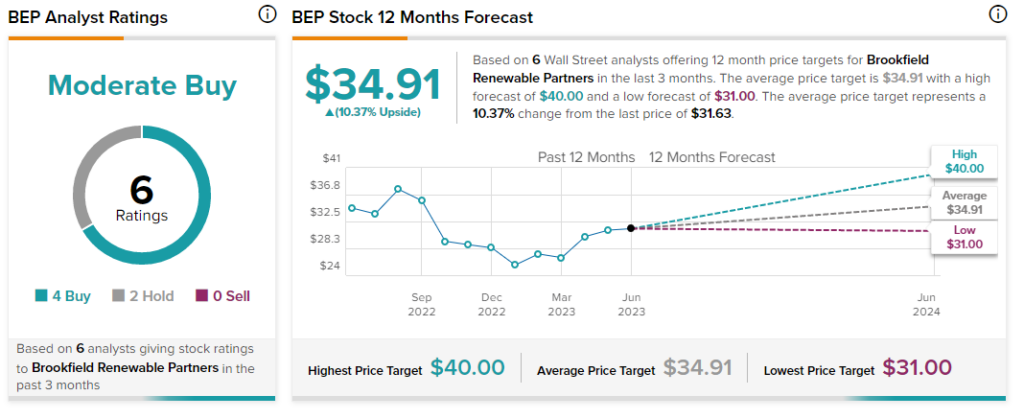Brookfield Renewable Partners (NYSE:BEP), operator of pure-play renewable power platforms, acquired U.S.-based Duke Energy Renewables’ unregulated utility scale Commercial Renewables business for $1.05 billion in equity proceeds with approximately $265 million net to Brookfield. This purchase could bode well for BEP’s stock price.
The deal is expected to see closure by year-end 2023.
Progressive Addition for BEP
With Duke’s significant operating assets and a strong development pipeline, the transaction has highly attractive near-term synergies for BEP.
The transaction is seen generating strong going-in cash flows leading to almost 3% accretion to 2024 funds from operations (FFO). It would also provide Brookfield the opportunity to share platform costs with its existing businesses and nab high-value contracts for new developments leveraging existing buyer relationships.
Backing the Acquisition
Besides the $3.9 billion that Brookfield Renewable has closed on, or agreed to invest in, in the past 18 months, today it announced a bought deal ($150 million) and concurrent private placement ($500 million) raising a total of $650 million in total equity proceeds.
The offer is expected to close on or about June 16, 2023.
Is Brookfield Renewable Partners a Good Investment?
Of the six Wall Street Analysts covering the stock, the consensus rating stands at Moderate Buy with four analysts assigning a Buy rating and two giving it a Hold. The average price target stands at $34.91, implying a 10.4% upside potential.
Last week, Credit Suisse Analyst Andrew Kuske reaffirmed his Buy rating on the stock with a $40 price target, which marks a 26.5% upside potential.
Year-to-date, the stock has gained 25%; BEP reported a strong first quarter with a 13% FFO growth year-over-year and signed transactions of $8 billion of equity investment alongside its institutional partners. BEP’s growth initiatives are seen supporting the company in its goal of achieving consistent double-digit annual FFO/unit growth. This is likely to act as a catalyst for rising stock prices.

















